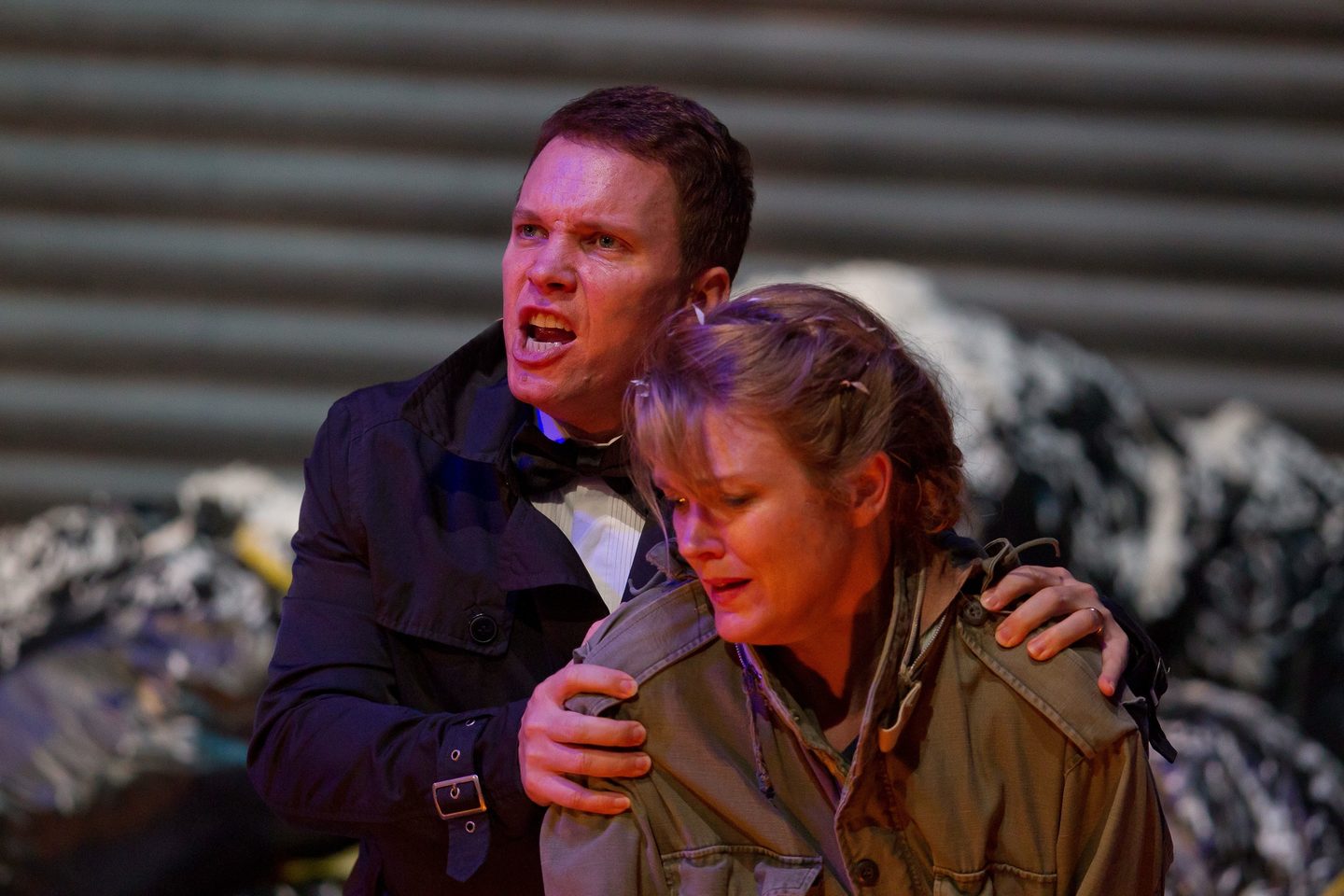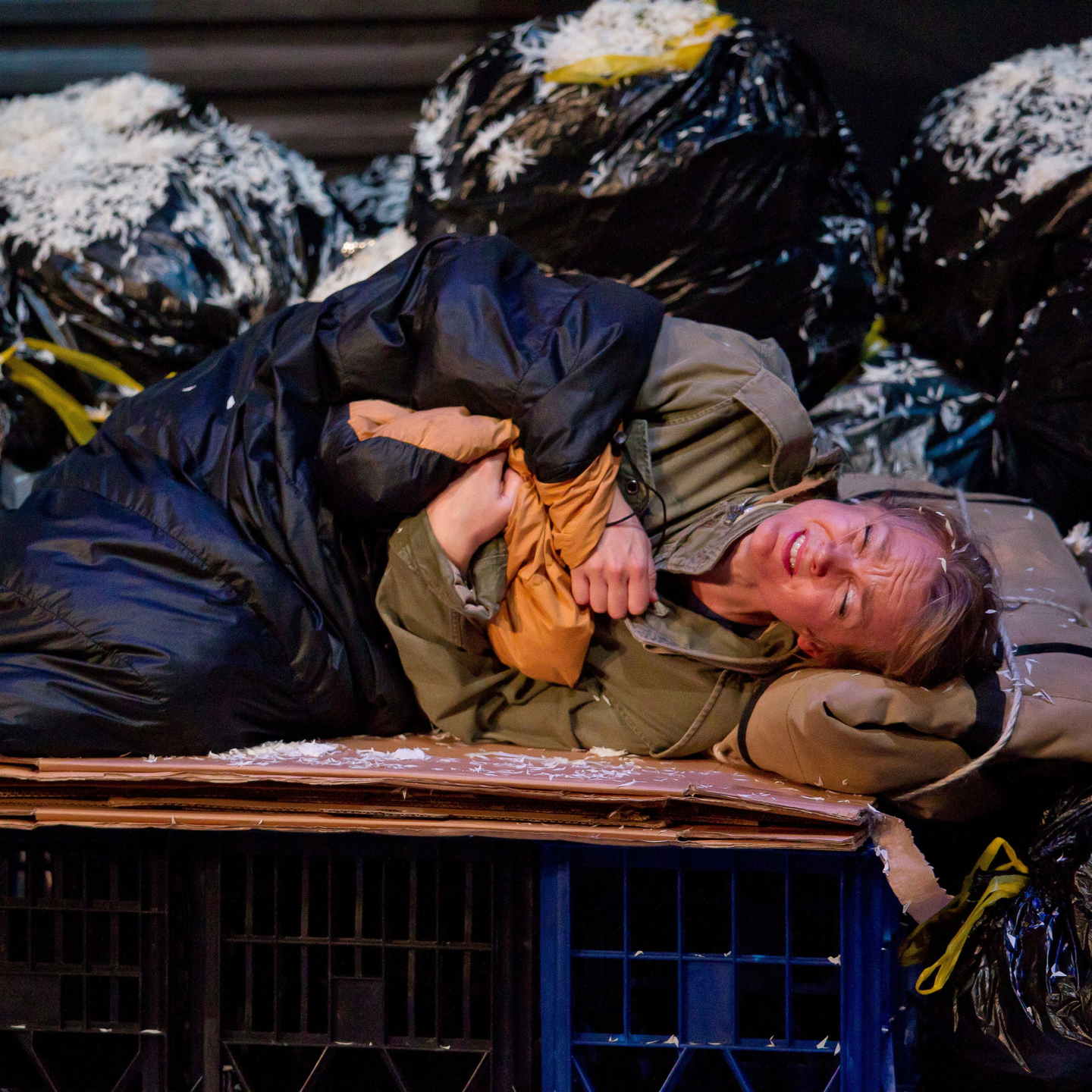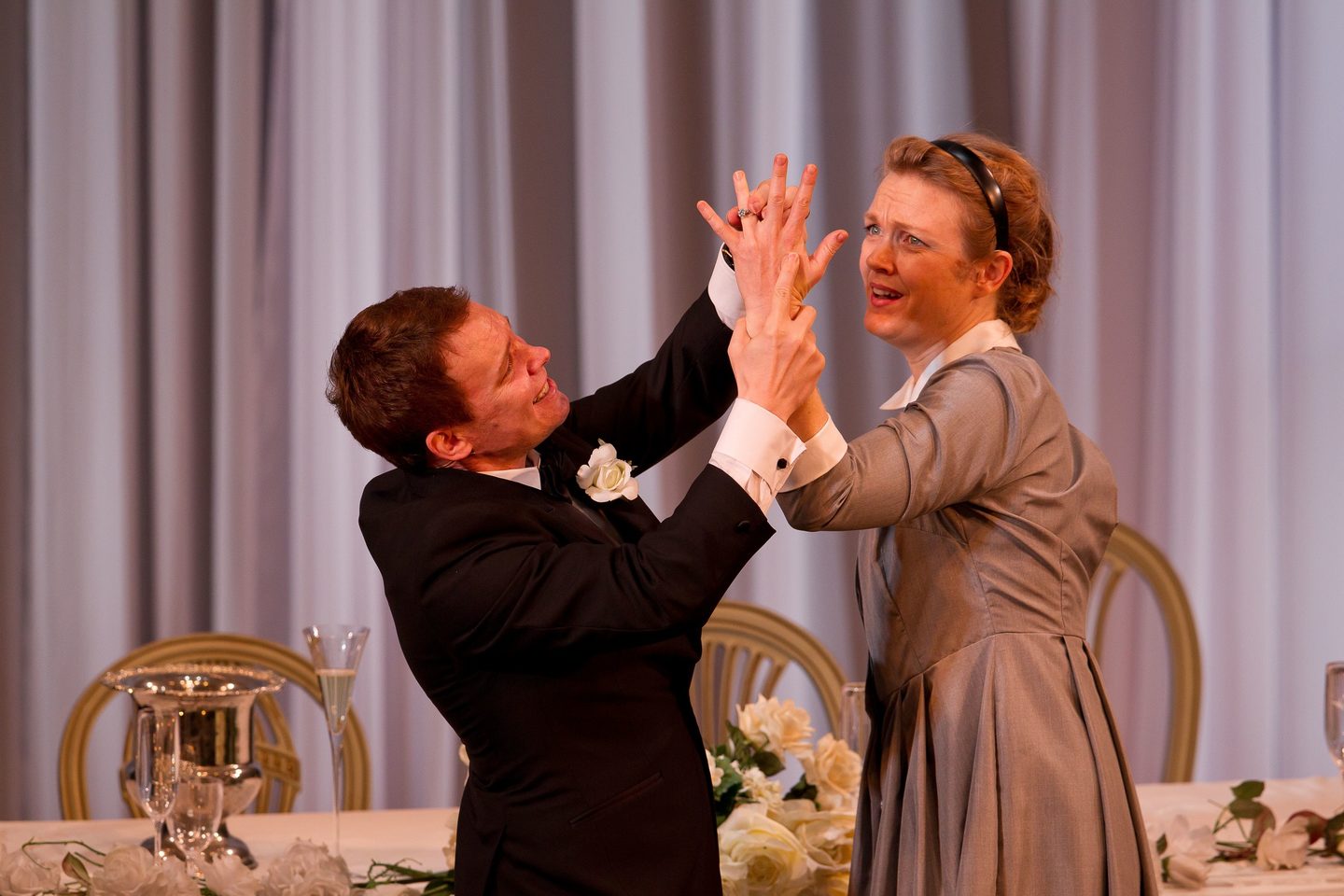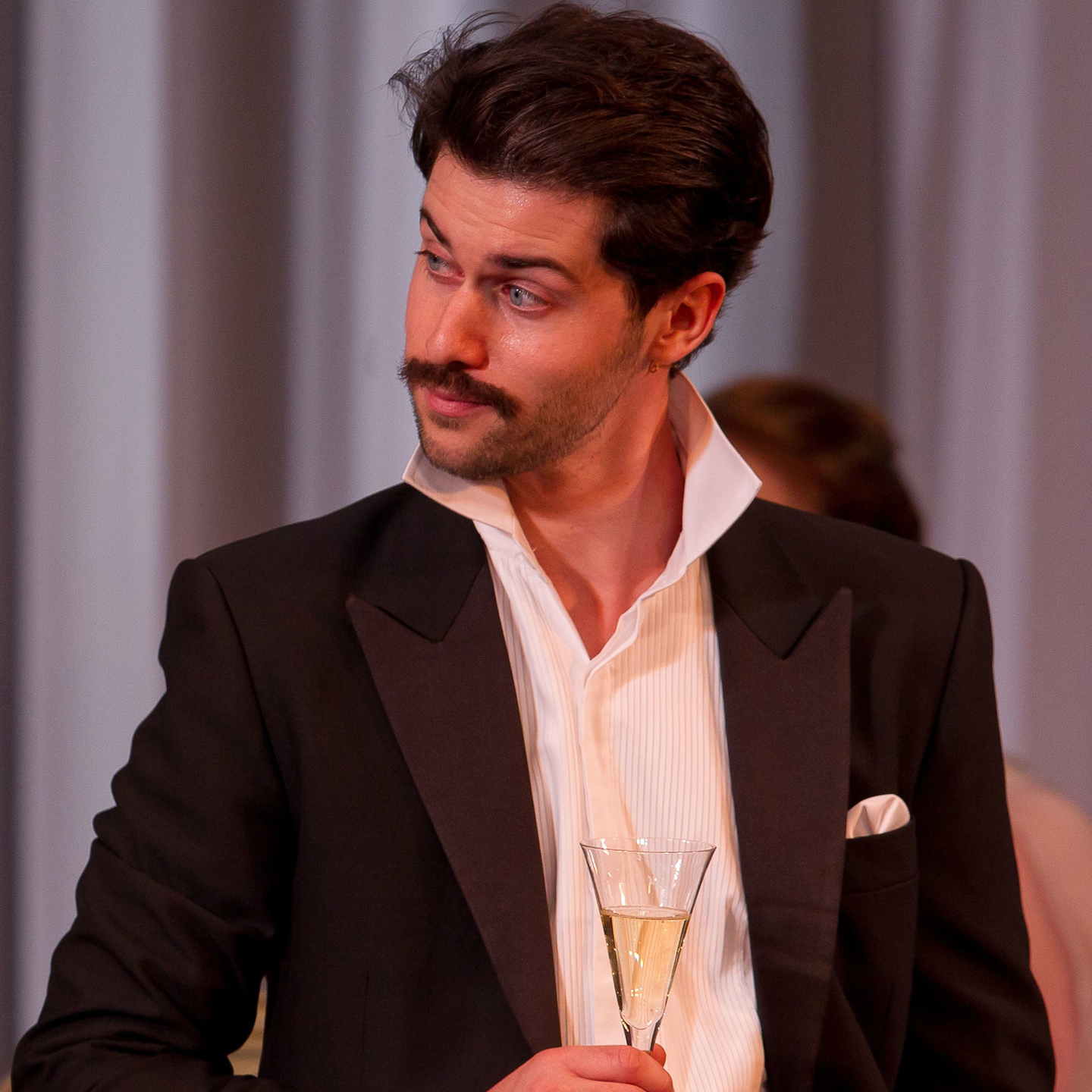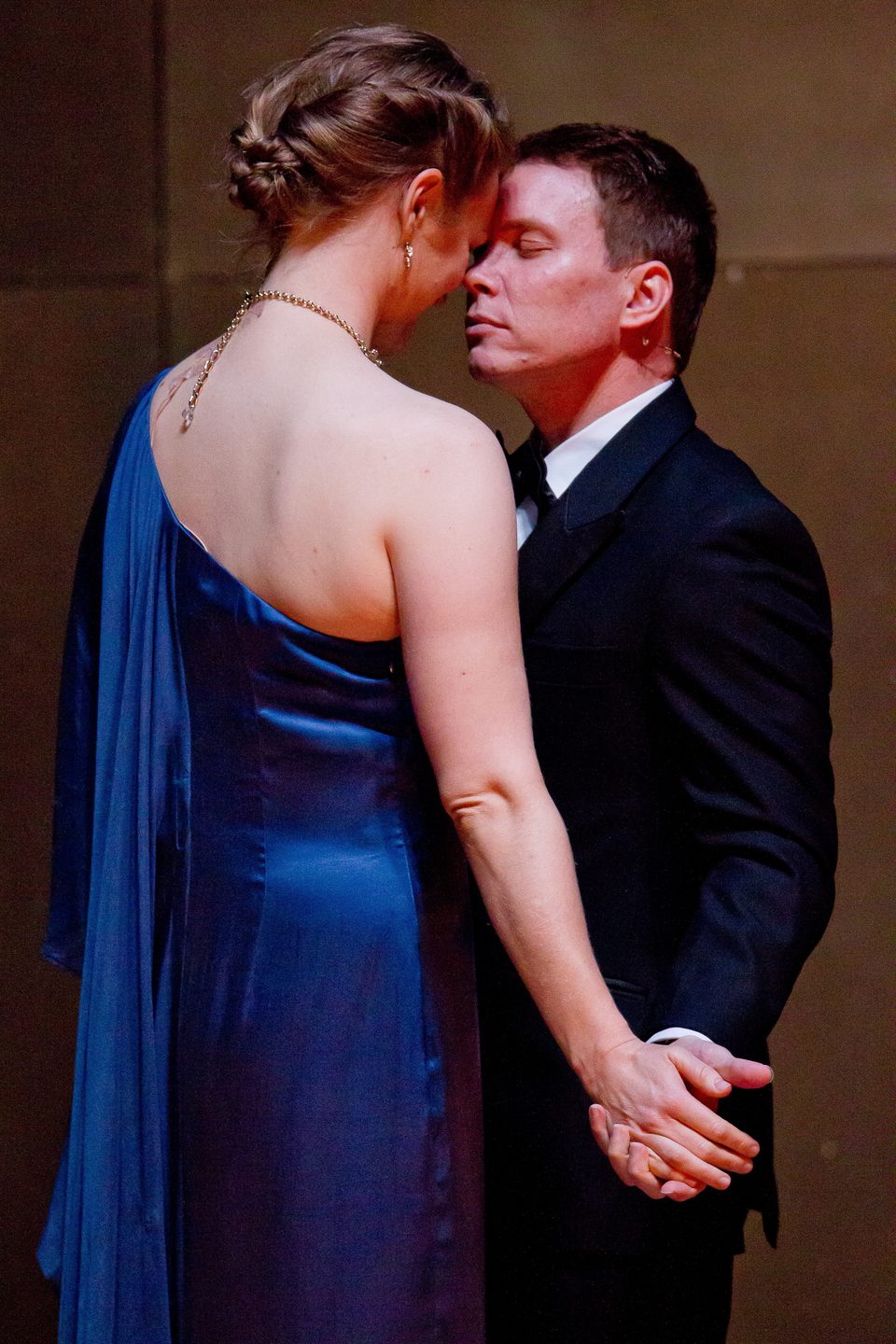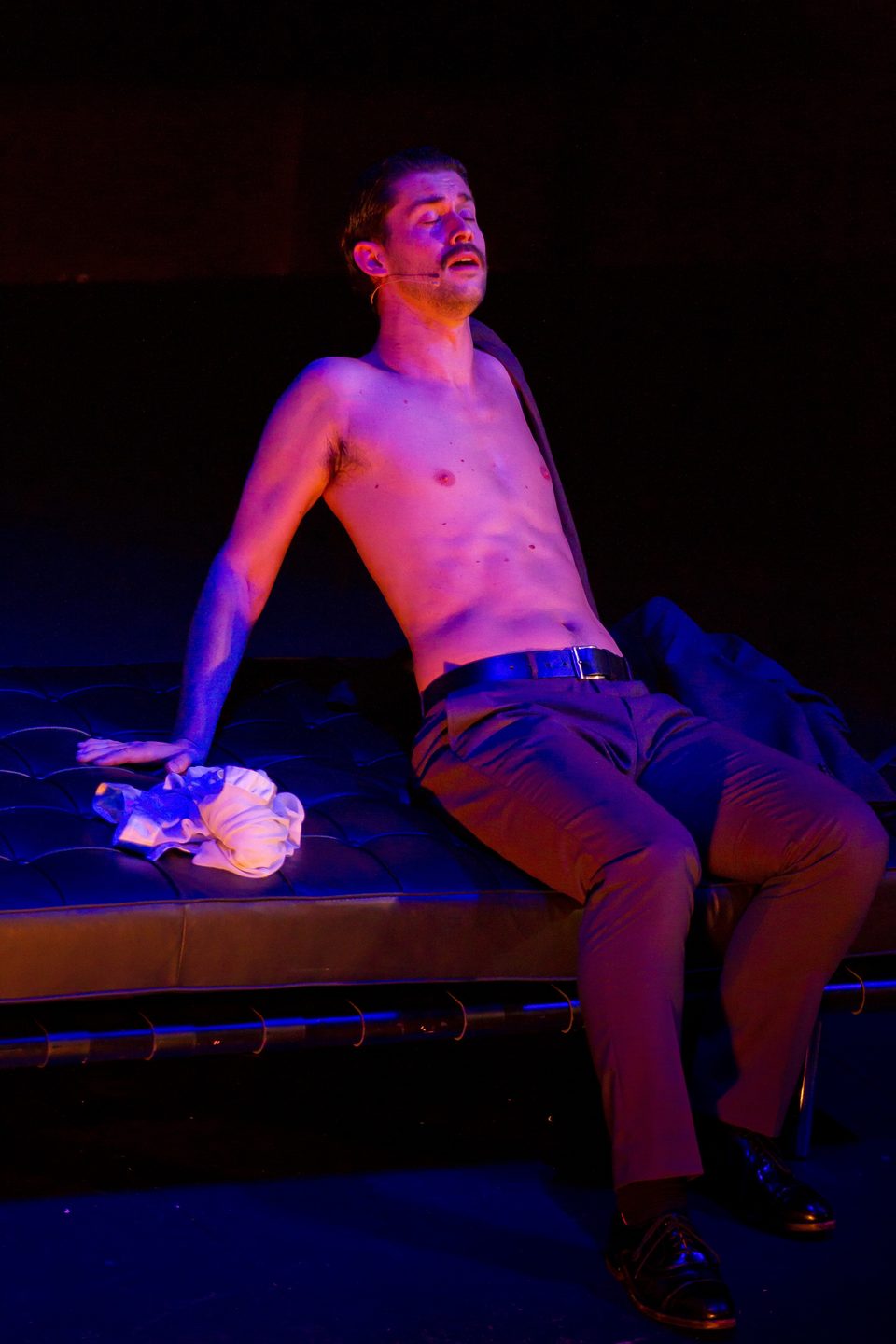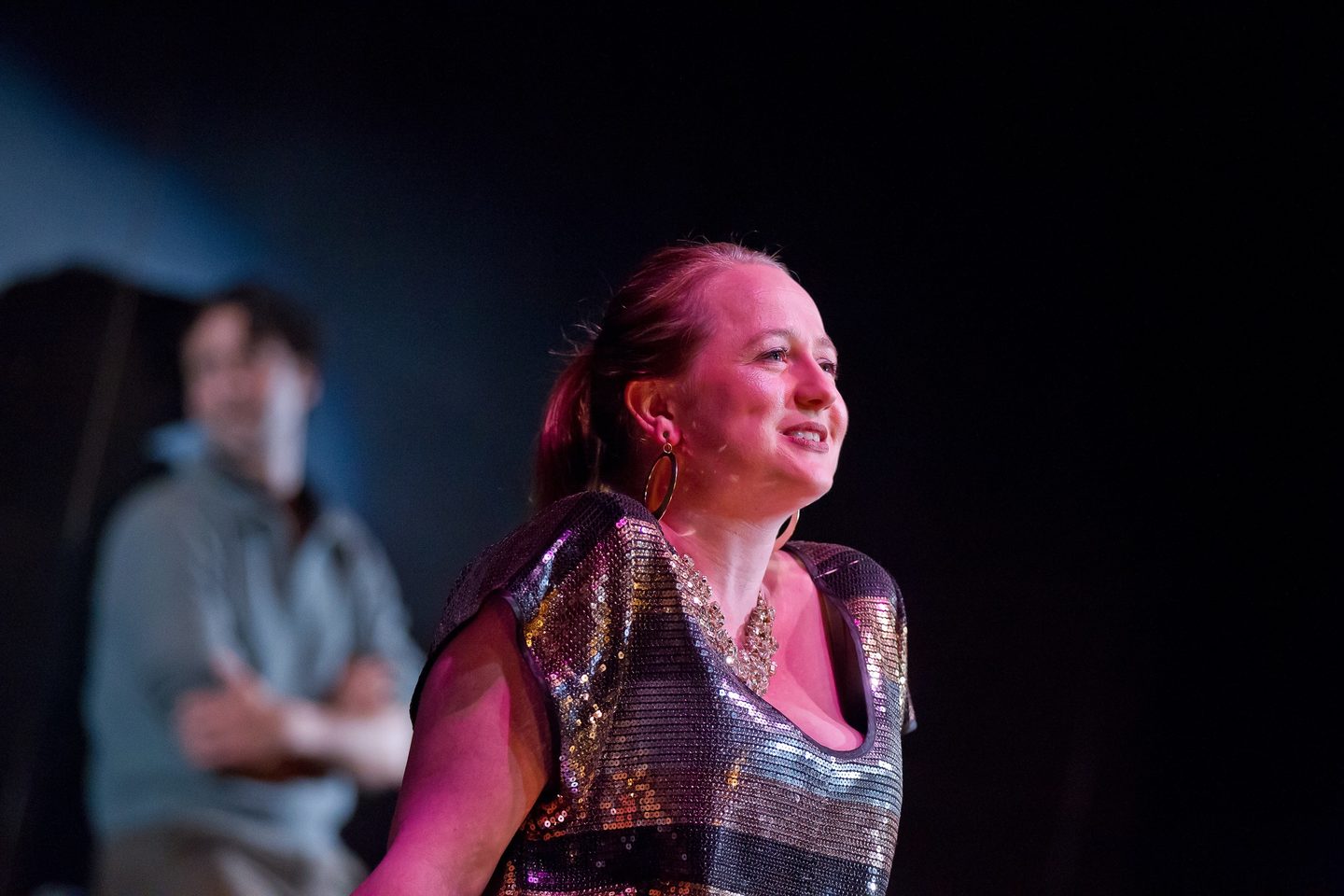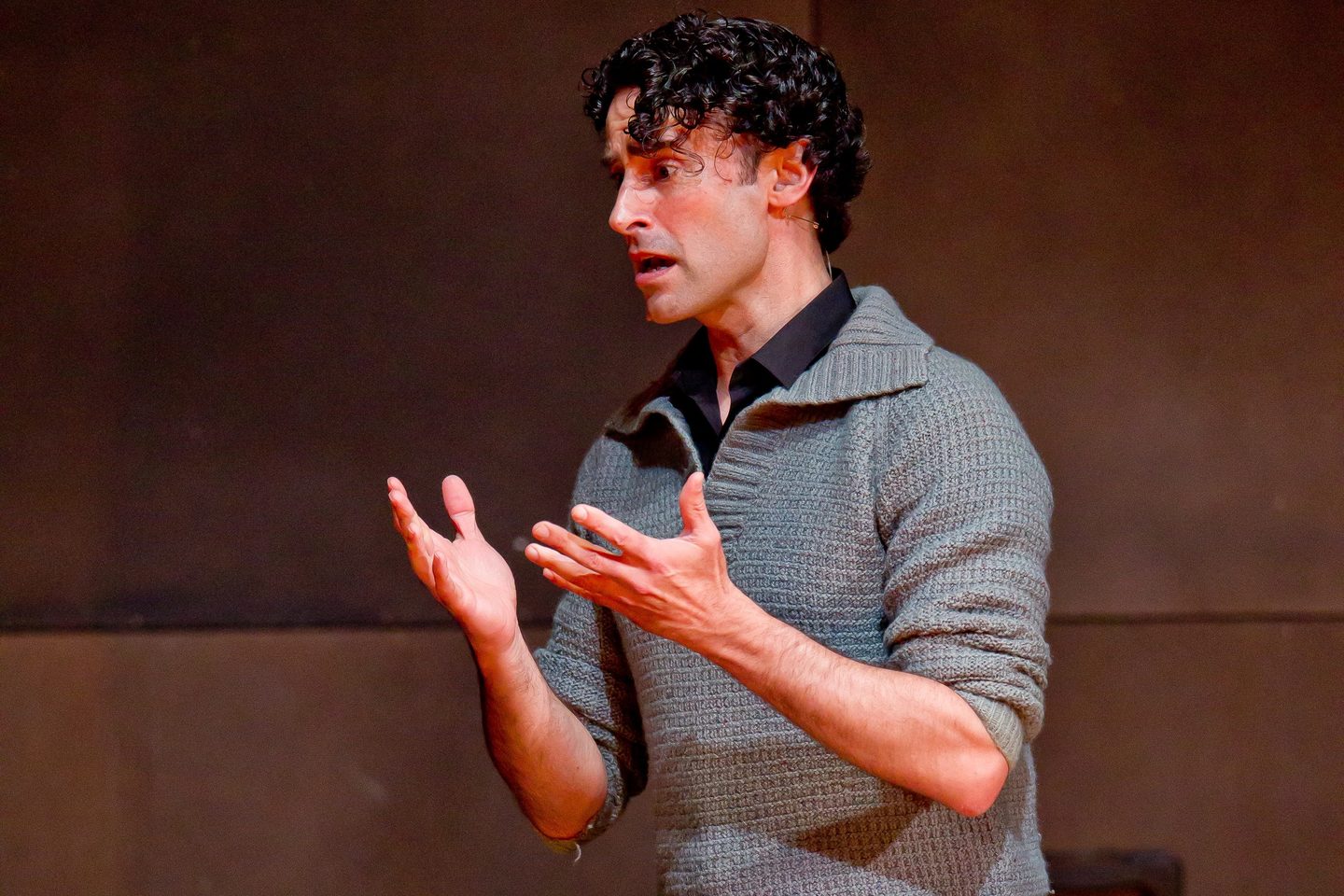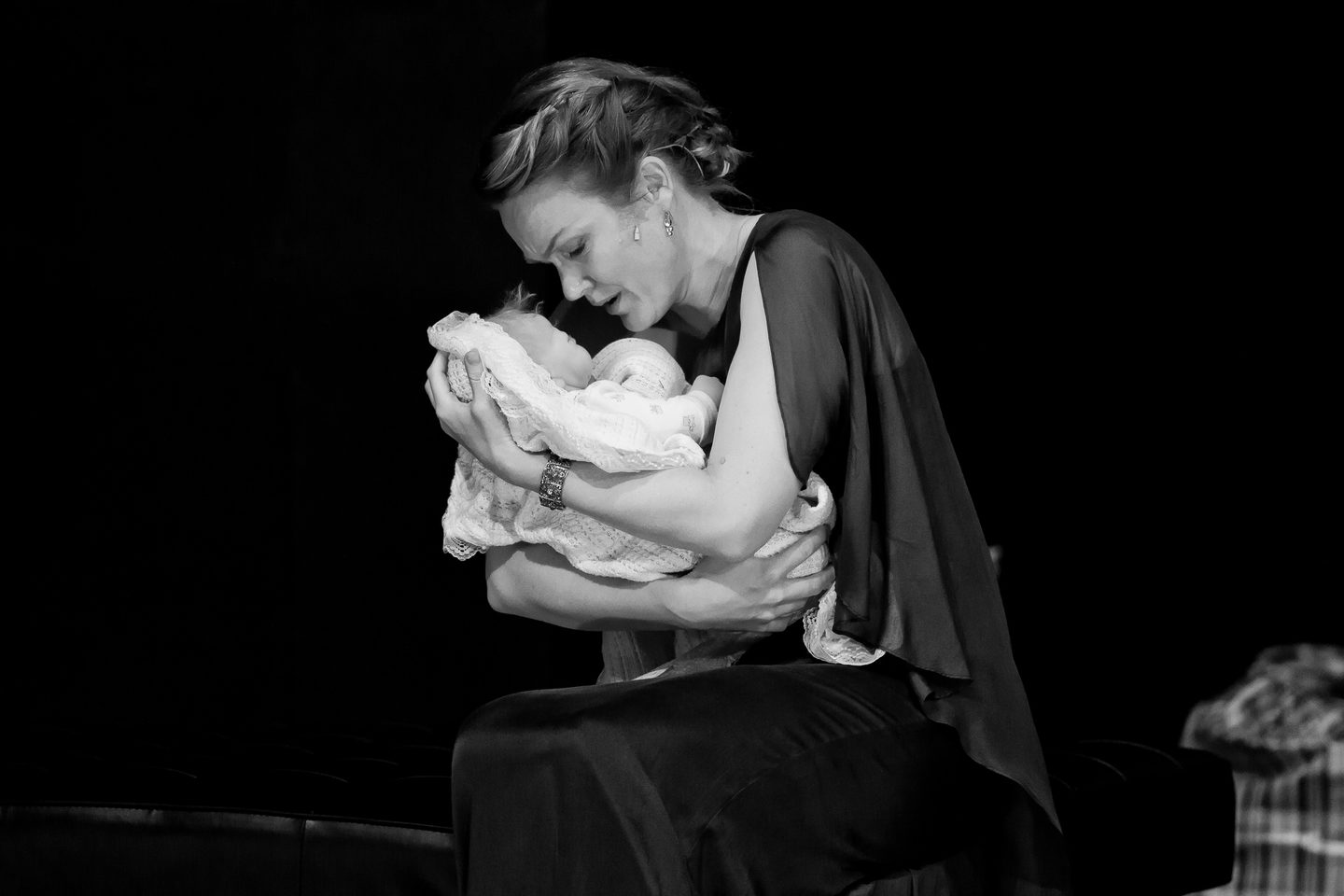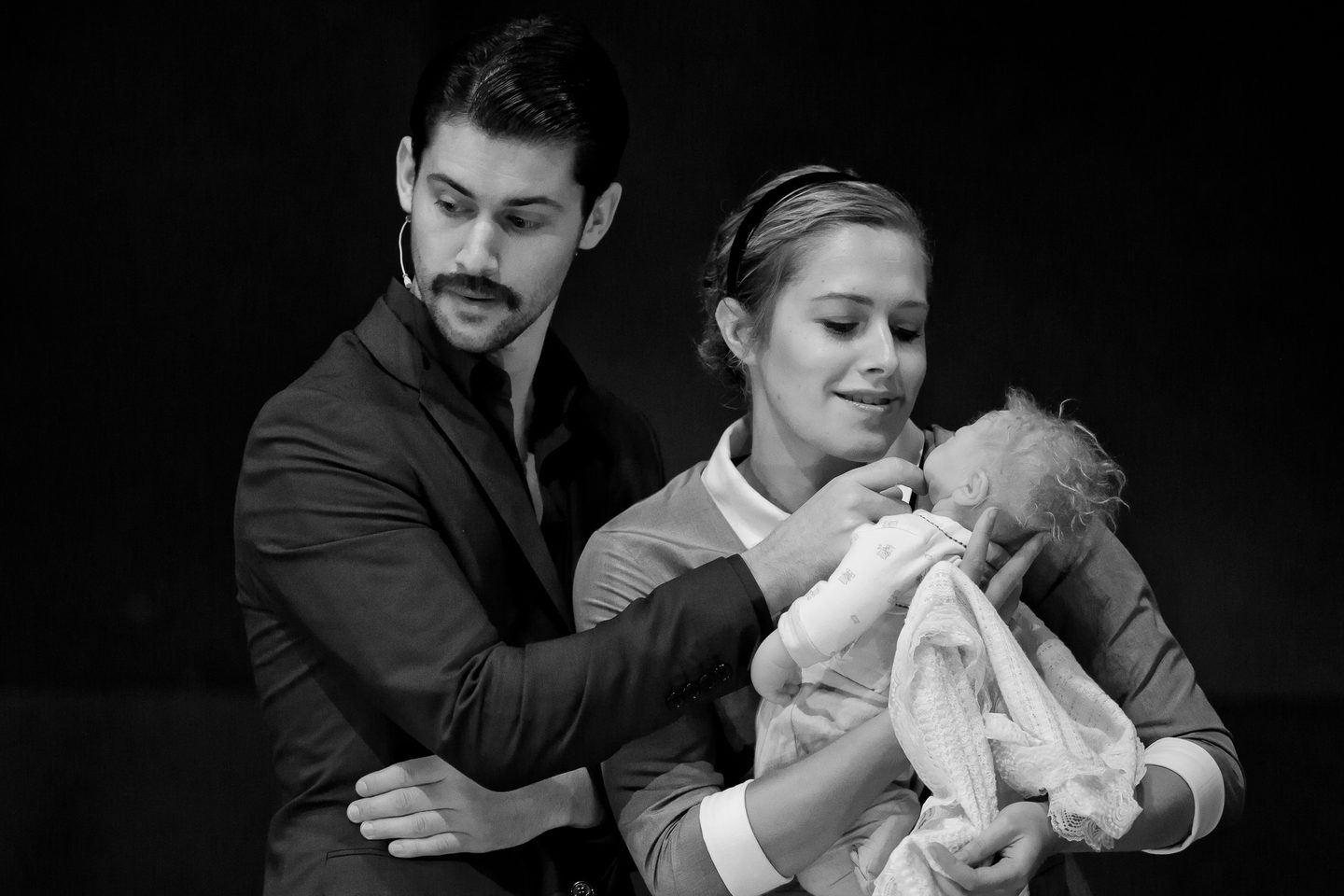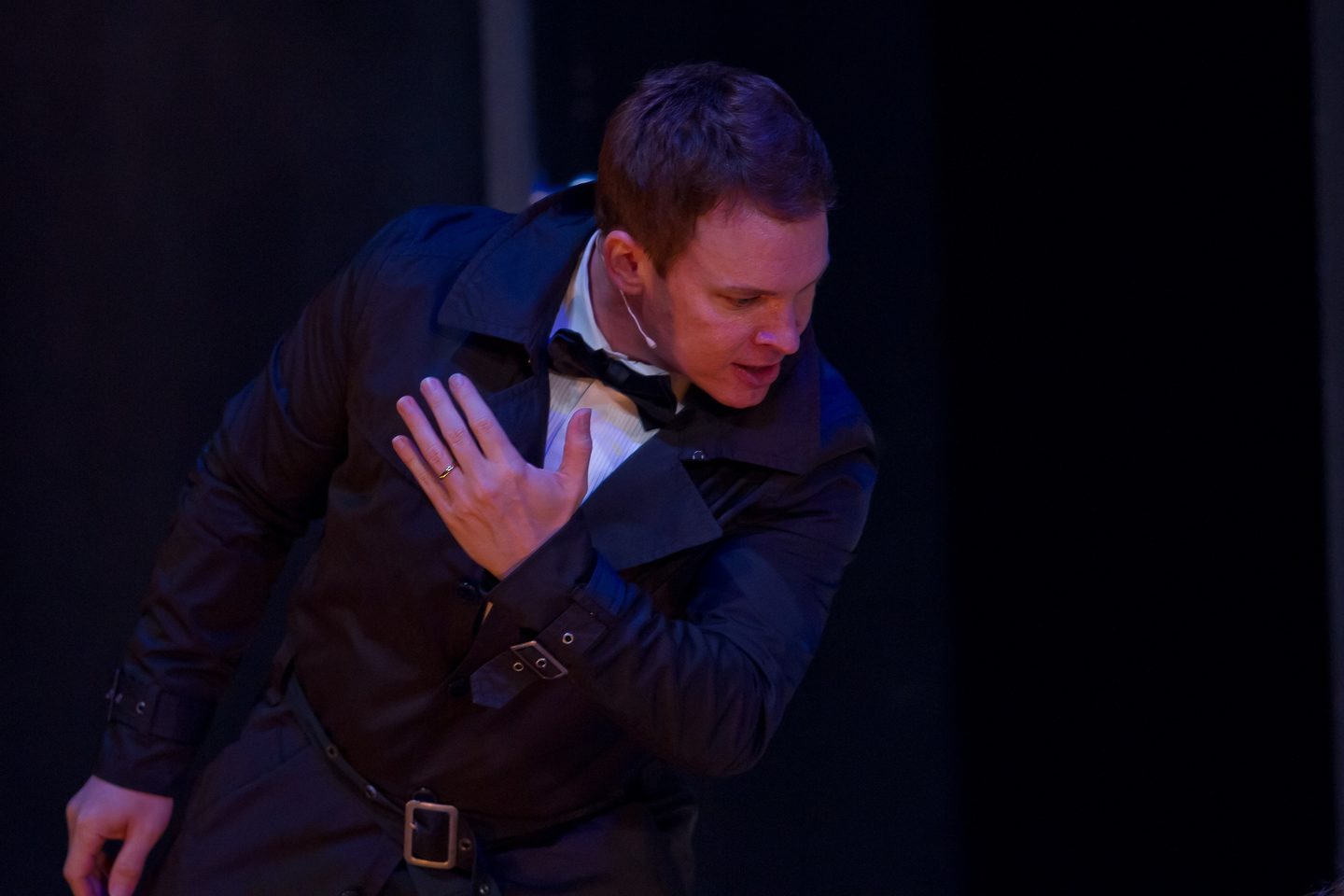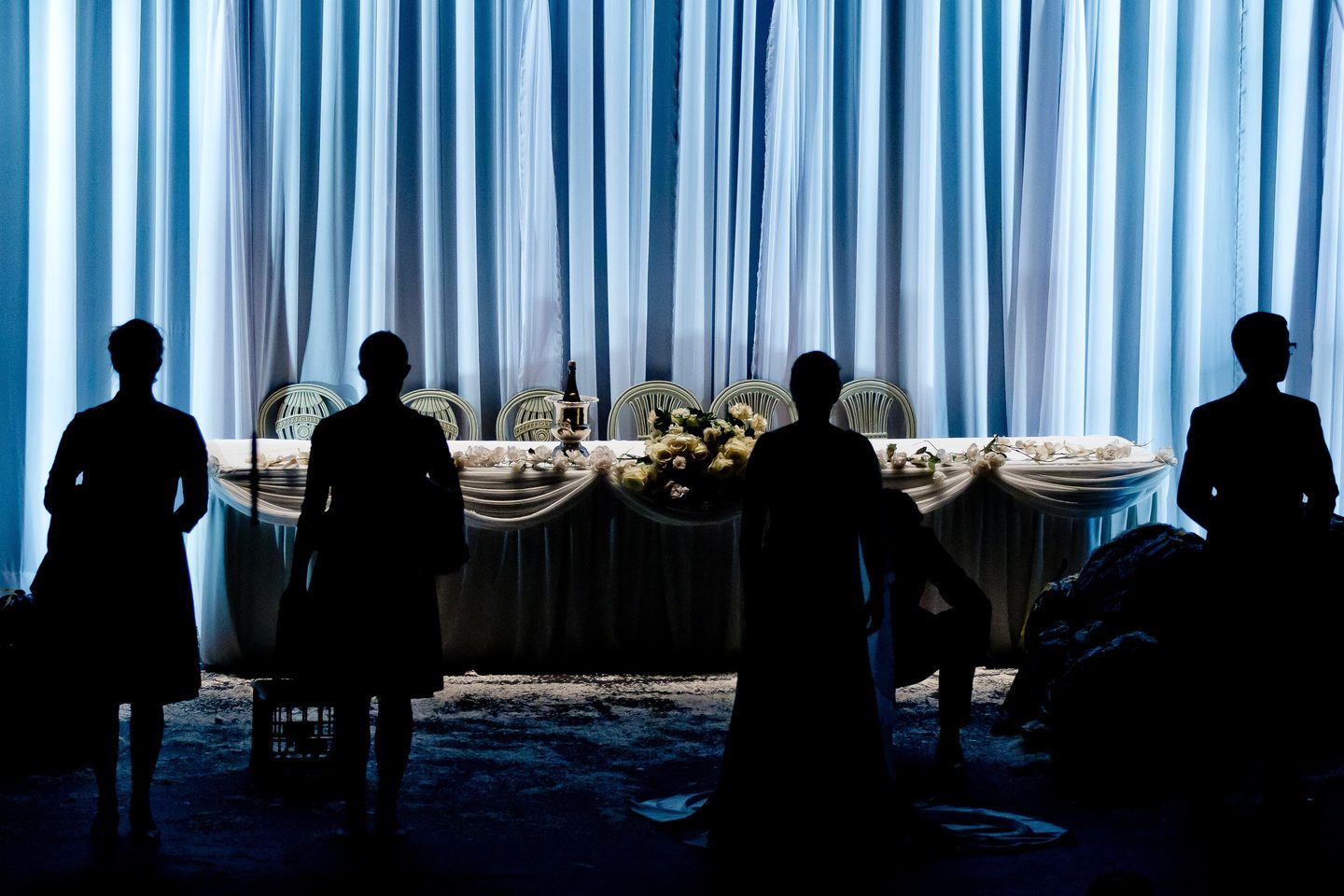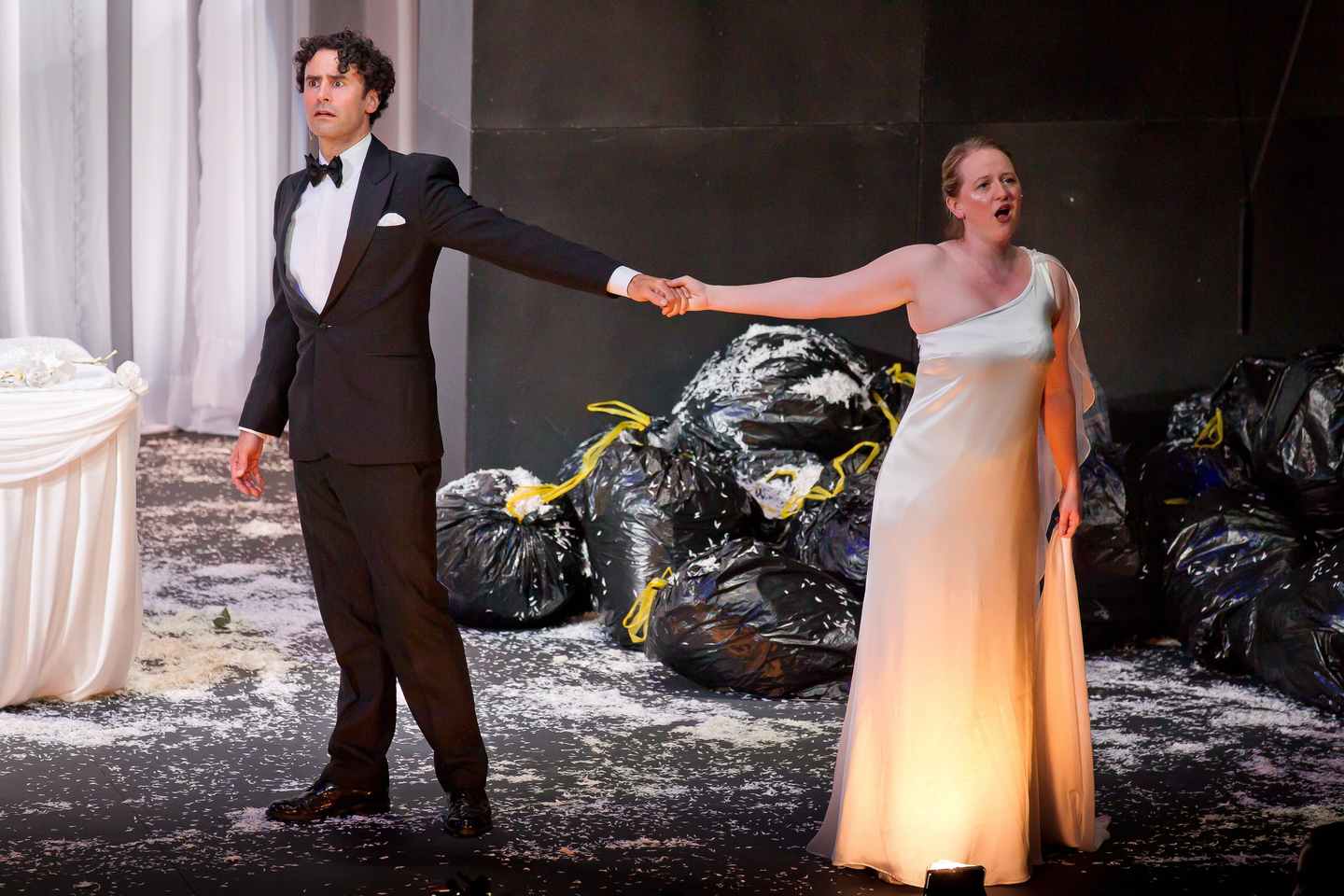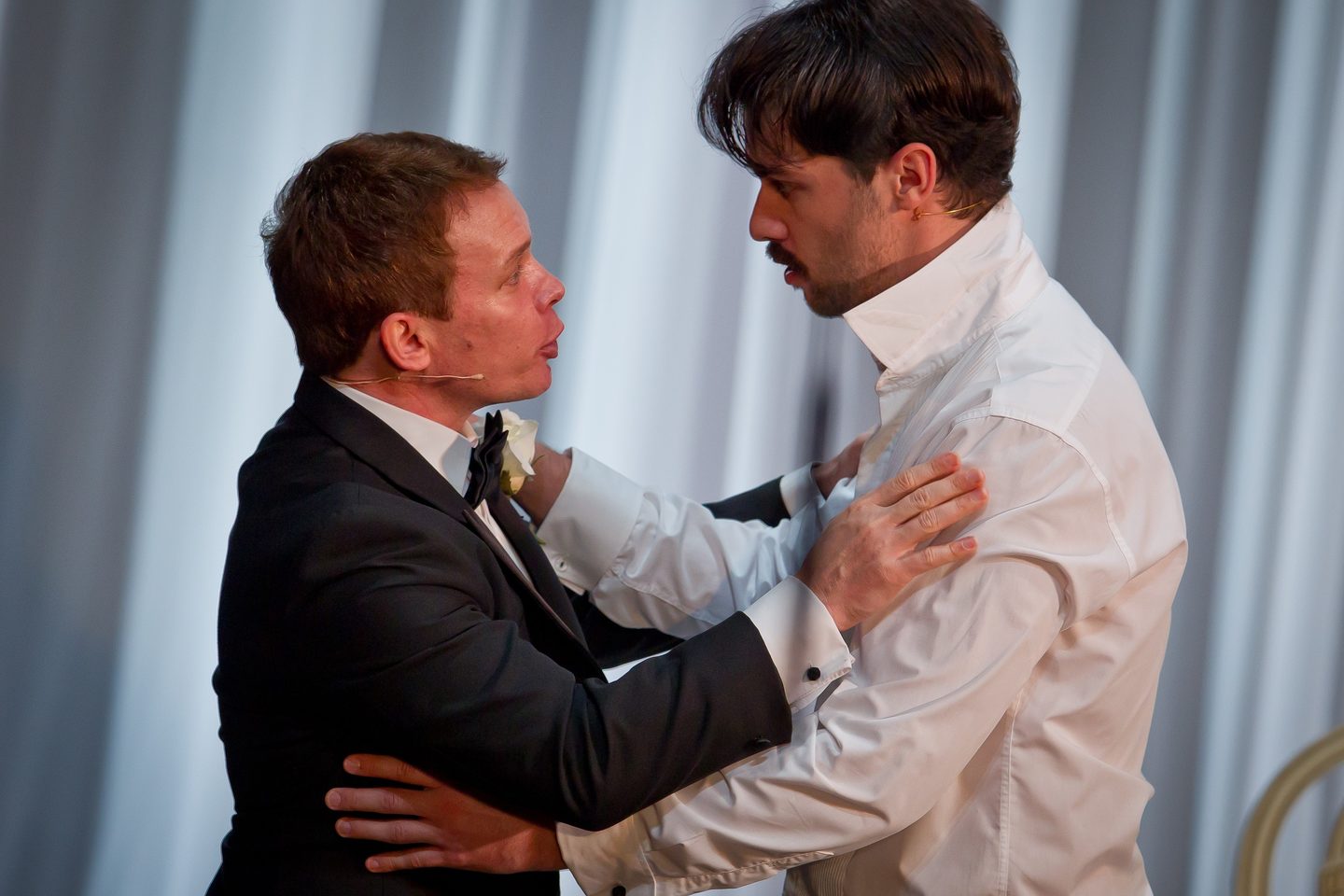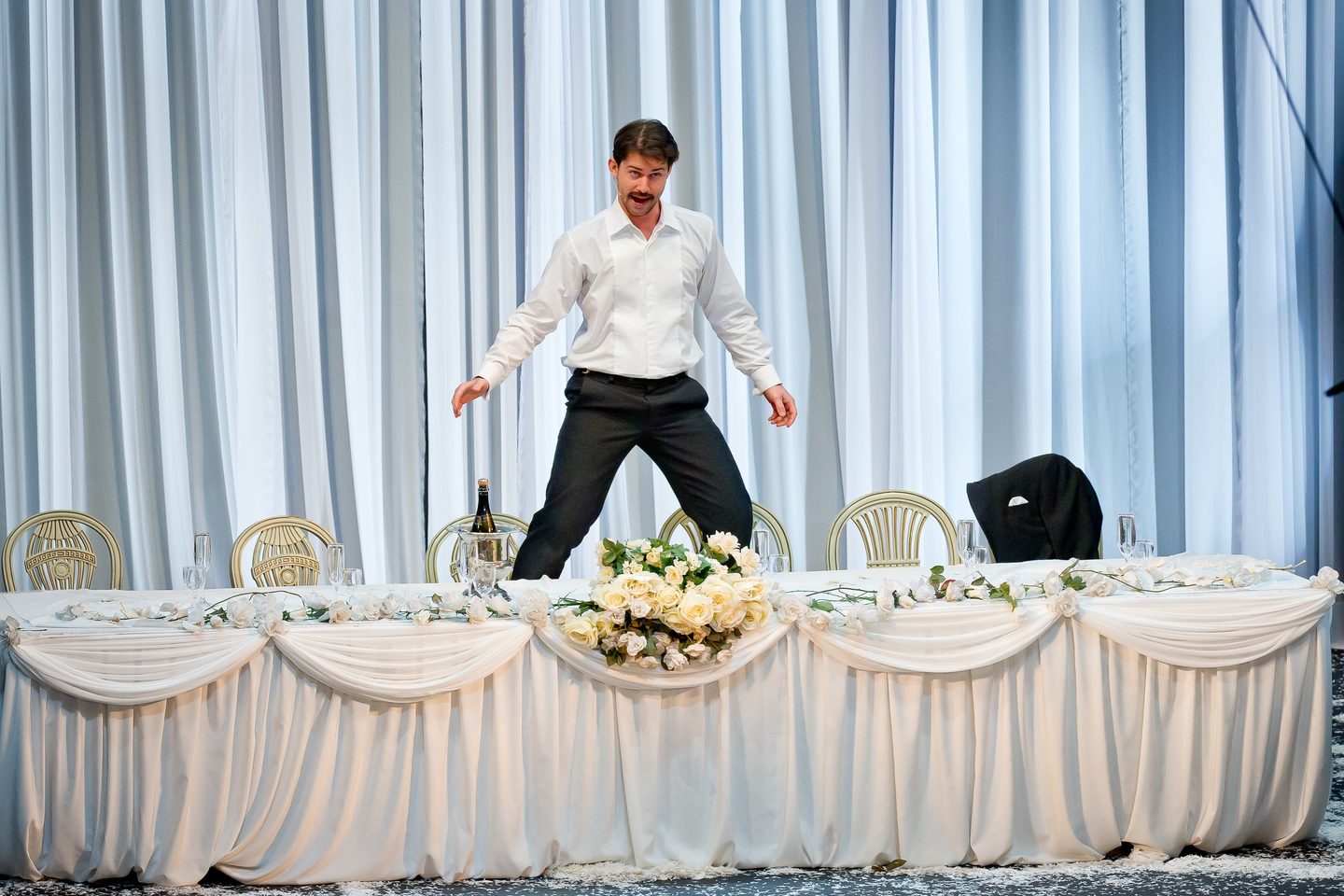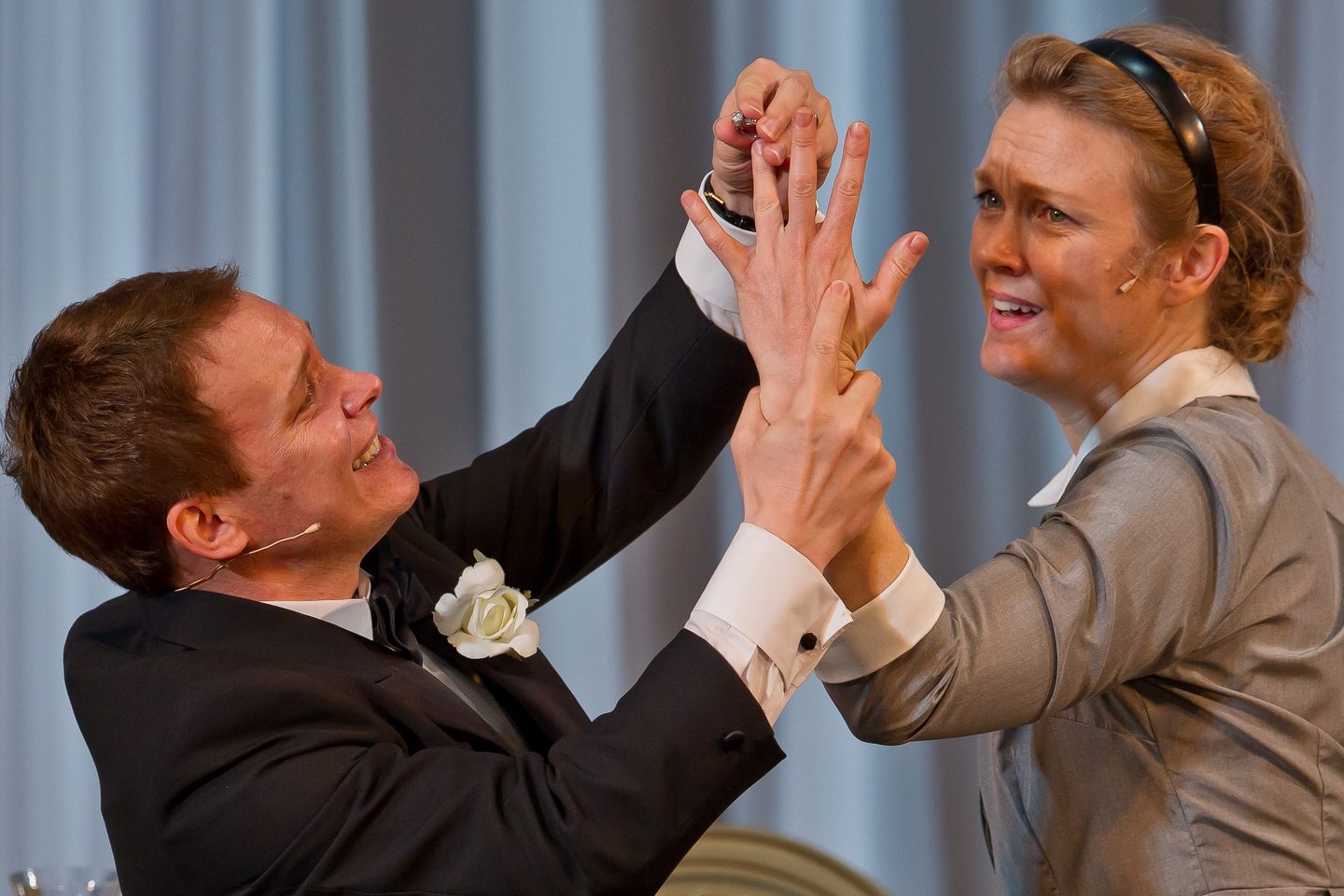Griselda
by Antonio Vivaldi
libretto by Carlo Goldoni, after Apostolo Zeno
Nov 30, Dec 3, 4 & 5 2011
City Recital Hall Sydney
Vivaldi's Griselda
Vivaldi's genius came to full fruition in his masterpiece Griselda. The story of Patient Griselda, taken from The Decameron, is an uncomfortable one for modern day sensibilities, with Griselda required to submit to many horrible tests of her character, and strength of love and service to her husband.
The role of Griselda was written for Anna Girò, Vivaldi's particular protogé who is remembered as more of an actor than a singer. The score contains some of Vivaldi's finest - and most difficult arias - including Agitata da due venti and Dopo un'orrida procella. Usually sung by a woman in the few modern productions there have been, we cast the amazing David Hansen in the soprano role of the villain Ottone. Enjoy ornaments on ornaments and vocal pyrotechnics to burn!
REVIEWS
READ
1] Antonio Vivaldi: Saviour of Opera Companies
Although most of us today relish the composer of The Four Seasons for his instrumental works and flashy violin writing, in his day Antonio Vivaldi also made his mark as an opera composer, impresario, and conductor. Even though he had begun his career as an instrumentalist and pedagogue, his sensational debut as an opera composer in 1713 in Vicenza, with Ottone in villa, inaugurated a prolific vocation in the profitable field of dramma per musica, the theatrical genre most beloved of 18th-century audiences. Vivaldi prided himself on an unconventional and controversial life. By no means a humble man, he flaunted his formidable virtuosity, exaggerated his productivity, and boasted endlessly of his (welldeserved) international reputation. In 1739 he maintained to have written 94 operas, and to an English visitor he laid claim to 17 printed publications when in reality there were only 12 (Vivaldi cheekily inflated the figure by including the sets issued in two volumes). Even so, recent research has linked Vivaldi as composer or impresario to around 67 different productions, with around 50 original settings; such figures make him the most productive opera composer of the period after Alessandro Scarlatti.
Vivaldi’s forward-looking compositional style, flagrantly mercantile ambitions, and devil-may-care attitude combined to effectively alienate him from the more conservative and lucrative Venetian theatres controlled by aristocratic families such as the Grimanis. Even though Vivaldi’s operas were applauded throughout the Veneto, in Florence, Rome, Milan and Mantua, the crème de la crème of Venetian theatres remained off-limits to his productions. Vivaldi’s acidic tongue and eccentric behaviour had made him a host of enemies in influential places. There was no place for a plebeian priest (Vivaldi had been ordained in 1703, though he had ceased to celebrate Mass the following year) on the sumptuous stages of the S. Giovanni Grisostomo and S. Samuele theatres. These houses were equipped with the latest theatrical technology that – amongst other innovations – allowed the stage to accommodate the weight of live elephants and horses. The gaggle of young singers that Vivaldi preferred was never to be allowed to sully these expensive boards.
But things changed in 1735. A librettist called Domenico Lalli, an administrator connected to the Grimani operations, resigned. Suddenly one of Vivaldi’s most outspoken adversaries was no longer in power. As musicologist Frédéric Delaméa has shown, the Grimani theatres had been running at a significant loss for some time and the wise Grimanis probably observed with interest Vivaldi’s profitable runs in Verona for the 1735 Carnival season. Vivaldi, in his dual role as composer-impresario, had rather remarkably managed to run up a sizable profit. His strategy? Vivaldi favoured younger and less expensive singers on the cusp of international careers, and eschewed the exorbitant fees of superstar castrati. He also appears to have encouraged and promoted singers better known for their acting skills. This novel mix of young singers with crack techniques and dramatic actors with stirring skills of delivery appears to have struck a chord with Vivaldi’s audiences, who returned in droves to the opera house night after night. With Lalli out of the way, the Grimanis decided to give the notorious Vivaldi a try. For the libretto, they turned to a 27-year-old poet by the name of Carlo Goldoni. His task: update an old-fashioned 1701 story by Apostolo Zeno. The subject matter: the story of patient Griselda, from the Decameron. Goldoni himself penned an account of his first meeting with Vivaldi: in an impromptu test, the composer apparently picked out a scene from Zeno’s libretto and challenged the young Carlo to rework it right there and then, according to Vivaldi’s needs. Goldoni reports that Vivaldi was overjoyed with the result, embracing him and exclaiming to some singers rehearsing next door, ‘He did it here, he did it here, he did it right here!’
Vivaldi’s setting of Griselda has all the hallmarks of a seasoned professional at the height of his career. Sensing the fashion for the new modern galant idiom, Vivaldi was careful to contrast the traditional vocal fireworks with a new mellifluous and elegantly structured style. Most remarkable is Vivaldi and Goldoni’s reading of Griselda herself, forced to undergo the most horrific of trials at the hands of sadistic tormentors. Unlike Zeno’s more penitential portrayal, Vivaldi and Goldoni’s heroine doesn’t go quietly into servitude but instead rages at the injustices heaped upon her, spitting and clawing at her tormentors with spectacular arias destined for Vivaldi’s feisty protégée, Anna Giró. Vivaldi’s manuscript – freshly edited for this production – demonstrates an extraordinarily subtle use of fermatas and pauses, as the composer experiments with notating pause markings over barlines and between notes. According to Goldoni’s memoirs, Anno Giró preferred her arias to be ‘expressive and full of agitation, [with] an expression of the passions by different means, by words interrupted […] by sighs, with action and motion.’ Griselda’s arias are indeed characterised by significant moments of silence, almost as if silence is the only weapon left to her. The fact that her questions about her fate go unanswered by others only outlines even more dramatically the cruel injustice of the situation.
As for the Grimanis and the troubled finances of the S. Samuele theatre in 1735: the run was reported to be an ‘outstanding success’. Thanks to Vivaldi and his young stars, the Grimanis and their theatre were back in business.
Erin Helyard © 2011
2] Synopsis
ACT 1
King Gualtiero’s marriage to Griselda, a former bag lady, is unpopular with his subjects. Gualtiero tells Griselda that he is replacing her with a more royal consort. She returns her crown to him; he immediately leaves to greet his new bride.
The court noble Ottone, who desires Griselda, promises to kill Gualtiero if she will love him instead. She rejects his suit.
Gualtiero’s bride-to-be Costanza arrives with her lover Roberto, torn between her feelings for Roberto and the prospect of becoming queen.
Corrado allows Griselda one last moment to bid her son Everardo farewell. Ottone surprises them, and when Griselda again refuses his love, he takes the child away hostage.
ACT 2
Ottone delivers an ultimatum to Griselda: either she agrees to marry him, or Everardo dies. In despair, she at first agrees to the bargain to save her son, but her devotion to Gualtiero proves stronger than her maternal love; she calls down the justice of heaven on Ottone as he leaves to carry out his threat.
INTERVAL
Ottone reflects on the anguish he feels at Griselda’s rejection. Meanwhile, Costanza and Roberto continue to struggle with the conflicting demands of love and loyalty. Griselda, now living rough again, cries herself to sleep. Costanza arrives and finds herself strangely drawn to Griselda; she begs Gualtiero to let her employ Griselda as her maid.
Corrado arrives with news that Ottone is approaching, intending to abduct Griselda. Gualtiero tells her to accept her fate, but changes his mind at the last minute, and has Ottone escorted away.
ACT 3
Griselda overhears Costanza and Roberto declaring their love for each other; furious at their betrayal of Gualtiero, she launches into a tirade of reproaches, but when Gualtiero arrives, he tells Griselda the matter is none of her business, and orders her to serve Costanza without question, even if she is dallying with Roberto. The lovers are bemused but delighted at this reprieve.
Griselda is further humiliated by being required to direct the wedding preparations. Gualtiero, still not satisfied, pledges Griselda to Ottone. The return of her son, unharmed – offered as evidence of Ottone’s tender feelings for Griselda – does nothing to weaken her resolve: when Gualtiero presents her with the choice between marriage to Ottone or death, Griselda chooses the latter, proudly proclaiming herself faithful to Gualtiero to the last.
This is the proof Gualtiero has been waiting for. Faced with such virtue, the people can no longer oppose Griselda as queen. Gualtiero reveals that Costanza is their long-lost daughter. He gives his blessing to the marriage of Costanza and Roberto. Griselda is silent.
3] Director's Note
Appearing in the 14th century, as the climactic episode in Boccaccio’s Decameron and in Chaucer’s Canterbury Tales, the Griselda story speaks to us today. At its core, it concerns the pursuit of professional success, at any personal cost. This is as it ever was, topical.
Reworking a libretto by Apostolo Zeno, playwright Carlo Goldoni and Vivaldi open their version with a crisis: the opinion polls look bad for King Gualtiero. His people are tired of Queen Griselda, a woman of humble birth. A petulant public demands he have a nobler consort.
Were Gualtiero to convince others of Griselda’s loving, loyal nature, she might become acceptable. So Gualtiero tells Griselda he is bringing a bride of noble birth to the kingdom and commands her to leave, thereby unleashing a series of trials testing Griselda’s resolve and spirit.
However, Gualtiero’s keen eye on the result, on satisfying his subjects, and in pursuit of the truth about Griselda, leaves him blind to the damage wrought by his scheme. It doesn’t let him see the anguish his wife suffers.
Other characters in the opera are equally driven: court noble, Ottone, lusts after Griselda. He threatens to kill the king unless Griselda has an affair with him.
Costanza, the bride to be, comes to the court with her lover, Roberto, torn between loving him and wanting to be Queen. The king’s confidant, Corrado, has his ambitions too: witness to the humiliations Griselda endures, wanting to keep his career on course, and not cross the king, he does little when things get murky.
In the face of such conspiracies, Griselda resists. Her resilience is admirable, yet the extent of her suffering reveals a complex ambiguity: it’s as though Vivaldi and Goldoni want to shake us up when it comes to thinking about the mechanics of power and marriage. Through her endurance of her ongoing degradation, Griselda gambles masochistically with her sanity, and for his part in his pursuit of ambition, Gualtiero’s sadism might just be triggering his own demise.
These complexities resonate not only with the struggles that might exist within a domestic union, but with the power that individuals seek and play out in public life. The opera is fuelled by this tension between professional ambition and personal sacrifice, by behaviour that is both horrific and utterly human.
Mark Gaal © 2011

ARTIST INFORMATION
Christopher Saunders Gualtiero
Caitlin Hulcup Griselda
David Hansen Ottone
Tobias Cole Roberto
Miriam Allan Costanza
Russell Harcourt Corrado
Pip Edwards Maid
Orchestra of the Antipodes – Brendan Joyce, leader
Erin Helyard conductor and harpsichord
Mark Gaal director
David Fleischer designer
Luiz Pampolha lighting designer
Nicholas Gell assistant director
Nicole Dorigo language coach
Sophie Mackay stage manager
LISTEN
Dopo un'orrida procella
Ottone (David Hansen) sings the show-stopping aria near the end of Act III. The villain thinks he's won the girl!
David Hansen, Orchestra of the Antipodes, Erin Helyard conductor.
Sonno, se pur sei sonno
Caitlin Hulcup sings as Griselda, cast out from the palace, and now forced to sleep in garbage and snow.
Caitlin Hulcup, Orchestra of the Antipodes, Erin Helyard conductor.
Ombre vane, ingiusti orrori
Miriam Allan as Costanza, sings of the cruelty of fate, and the terror of being forced to do what you know to be wrong.
Miriam Allan, Orchestra of the Antipodes, Erin Helyard conductor.
WATCH
A highlight clip of Griselda

Gallery
We acknowledge the traditional owners of the land on which we work and perform, the Gadigal people of the Eora nation – the first storytellers and singers of songs.
We pay our respects to their elders past and present.
CONTACT
PO Box 291, Strawberry Hills, NSW, 2012, Australia
Ticketing and Customer Service 02 9037 3444 | ticketing@pinchgutopera.com.au
info@pinchgutopera.com.au

© COPYRIGHT 2002 - 2024 PINCHGUT OPERA LTD | Privacy Policy | Accessibility | Website with MOBLE


